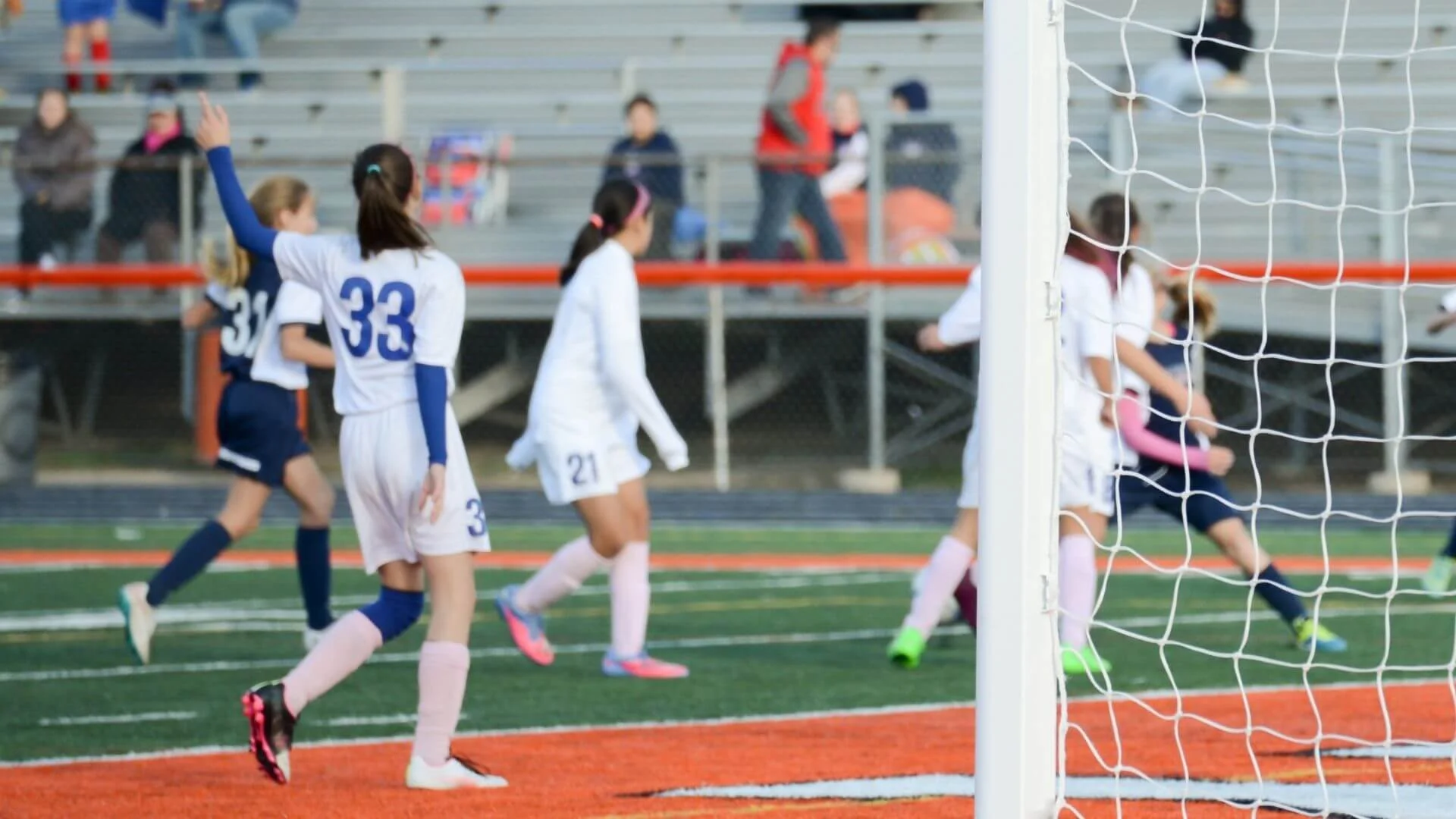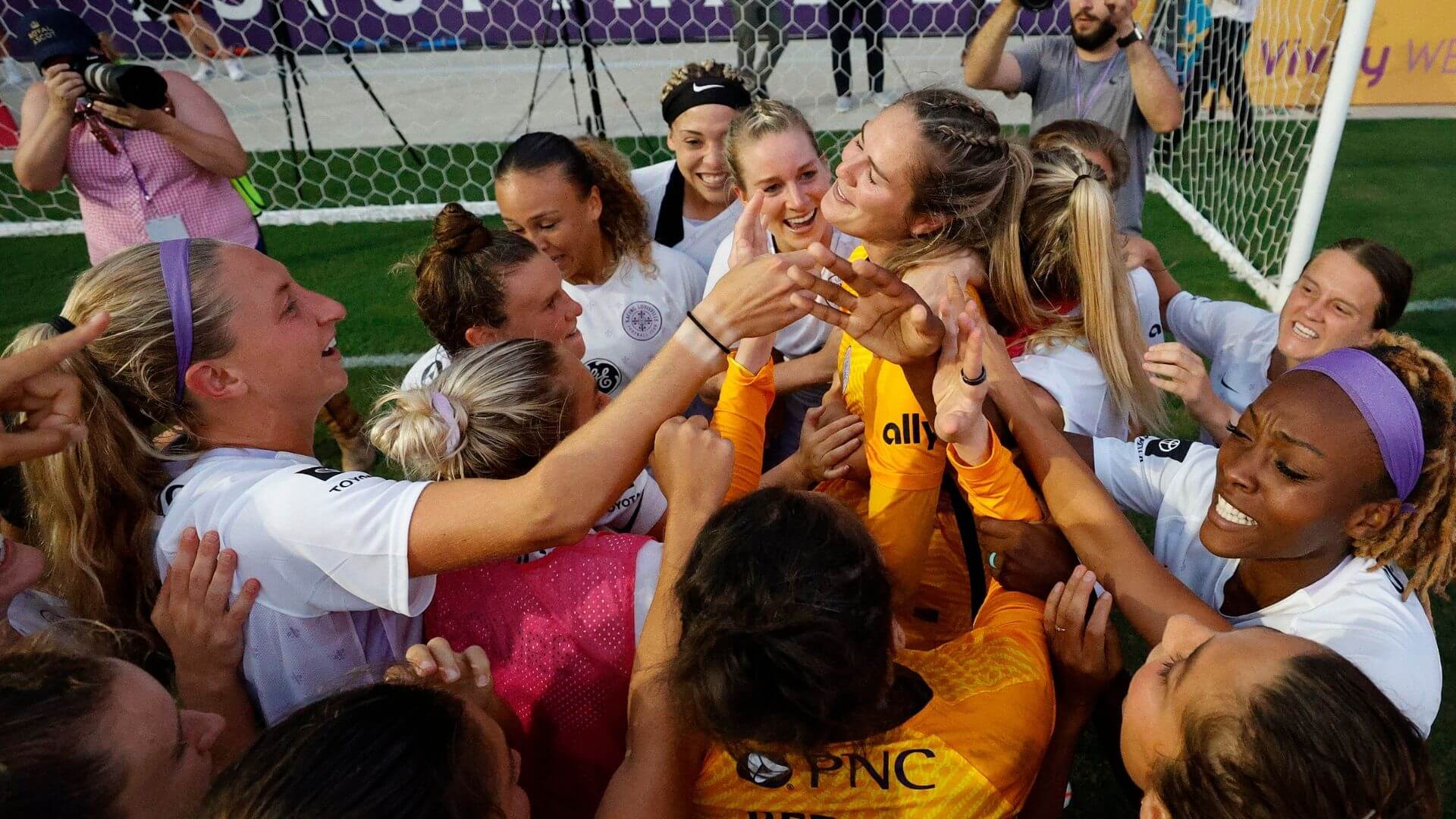Over Apologizing: Women’s Soccer’s Hidden Epidemic
During my redshirt junior season of college, I volunteered as an assistant coach for a U-11 team in my college town. The head coach was a young and goofy dad who played sports in college. He had a daughter on the team. He didn’t quite know the best drills but he knew his way around a ball and some cones well enough. And most importantly, he brought fun energy.
This is a classic youth sports scene. He was a typical head coach in so many ways. Except one. Not long after I started, I noticed in the warm-up of one practice that he would sporadically tell a girl to do push-ups. I asked him why–not recalling any “rule” explained beforehand that said push-ups were part of the drill. He went on to tell me that the girls were to do five push-ups if they said “sorry” unnecessarily.
He didn’t have to explain any further. I knew exactly what he was talking about even if it had never been explicitly brought to light in the soccer environments I had personally been in. A montage ran through my head: “sorry” when a teammate went a little too hard on another during practice, “sorry” when someone messed up a drill, “sorry” for an errant pass, “sorry” for a ball sky’d over the goal, “sorry” when high-fiving coach’s hand coming off the field as a sub.
And then, of course, I couldn’t help but jump to a moment on the biggest stage. During the 2019 Women’s World Cup, the USWNT beat Thailand 13-0 in the opening match.
Even though it was an onslaught, the Americans celebrated all their goals as if each was a gift and a manifestation of all the individual and collective hard work they did to get there. People were pissed because of it, calling it “showboating.” It’s a different dimension of the same issue. The idea was that because these players were not timid or contained in their emotions, they were disrespectful or off-putting.

It’s an epidemic, really. And it’s not just women’s soccer. It’s women’s sports. Really, it’s anywhere women operate in society in general.
In recent years, there have been a handful of studies conducted with results that back up this anecdotal evidence. Women apologize more than men. And no, that’s not because women are hurting more feelings and making more mistakes.
Rather, women apologize more because their threshold for what they consider offensive or an infraction is lower than men. So, the dude who takes out the legs of his teammate in an effort to get the ball in an intense game of flying colors likely just doesn’t see his crunching tackle as worthy of an apology. It’s part of the game his brain justifies in lightning-quick speed.
Unsurprisingly, the over-apologizing habit of women starts at an early age. Girls are implicitly and explicitly taught to be more of people-pleasers than boys from the time they start playing in the sandbox.
They are being relayed signals that tell them to be confident but not cocky, ambitious but not to try too hard, and assertive but only if it doesn’t upset anyone else. Bossy, know-it-all girls who are physically and/or emotionally shoving down their peers are more likely to experience backlash in female social groups.
Why are we communicating these ideas to girls in the first place? Ugh, well thousands of years of history of putting women in patronizing boxes.
But considering just a few of those examples, women are expected to be more empathetic. We think they should be hyper-aware of and care about people’s feelings more in order to keep the peace.
This expectation of empathetic intelligence that women shoulder can be pretty problematic when thinking about some of the key behaviors associated with success. Whether it’s Wall Street or the writer’s room, a “win-at-all-costs” mentality can be really beneficial.
Whether we think it’s right or not, caring for feelings and keeping the peace often gets pushed down the list of what we should prioritize if we want to be successful in go-to definitions of the word (e.g. money, trophies).
Following this logic, over-apologizing is often associated with a lack of confidence. It is often interpreted and personally internalized as a weakness.
Now, I’m not saying to go throw elbows and attempt solo 50 yard dribbles seven times a game because you’re a bad boss lady who can do whatever the F she wants and screw the haters. But hey, if you take a girl on 1v1 because that space opened up but you didn’t get past her and they counterattacked, or if you took the long shot because the goalie was short but you miskicked it, resulting in a goal kick for the other team…Don’t apologize. It’s part of the game.
It’s wild to think we can be so conditioned and not even realize it. The “sorry” blurt out of our mouths as a woman possessed. It takes intentional awareness to undo it. It takes practice, reminders. And what can that look like? Well, push-ups are certainly a technique that will make you not soon forget.
Coaches (female ones especially) and parents have a role in stopping the trend of girls becoming serial apologists. So do teammates with their language in practice and in games. It’s time to normalize women being true competitors.
True competitors take risks. They push forward with decisions that they feel confident in. A true competitor reflects—does not wallow or lean into—what they’ve done wrong or how they hurt the team. They spend more energy on what they can do better next time.
_
GIRLS SOCCER NETWORK: YOUR SOURCE FOR GIRLS SOCCER NEWS













